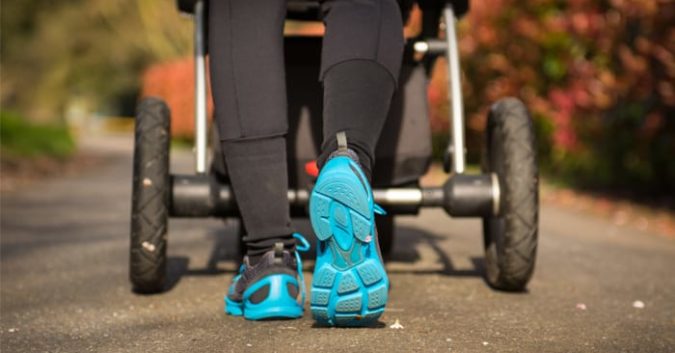After Britax Child Safety, Inc. declined to recall its hazardous jogging strollers, allegedly responsible for at least 97 injuries, the U.S. Consumer Product Safety Commission (CPSC) stepped in to prevent further harm.
The CPSC sued Britax, self-named the number 1 global manufacturer of safety technology for car seats, strollers, and baby carriers. According to allegations about the 3-wheeled BOB stroller in question, however, its front wheel can detach – which, for a child’s jogging stroller, is clearly a problem.
Consumers have filed more than 200 complaints to the CPSC since 2012, describing injuries such as labral tears, torn ligaments, and fractured bones in adults. But 50 of the almost 100 alleged injuries inflicted children, whose wounds ranged from grazes and bruises to concussion, dental injuries, and cuts to the face requiring stitches.
Though the CPSC has received reports of dangerous incidents with other manufacturers’ strollers before, the federal agency rarely issues complaints itself. Usually, the government works with companies to issue voluntary recalls. If this jogging stroller lawsuit warranted a forced recall, the charges are markedly more serious.
Britax Refuses to Play Ball
According to the CPSC, the stoller wheel’s quick-release design allows for use even if not properly secured. But the wheel can suddenly attach – and when it does, the front fork digs into the ground, causing an abrupt stop and tipping the stroller over. This can result in serious injuries either to the child in the stroller or to its adult operator.
The CPSC voted 3-1 to file its consumer safety lawsuit when Britax failed to recall or repair its strollers in line with the Commission’s recommendations.
“The quick release, which is used to secure the removable front wheel to the frame, is a widely-used feature. It has a history stretching back decades – first in bicycles and then in strollers,” the company contested in a statement, describing the product as safe when used as instructed and the removable wheel as not a defect, but a valuable functionality for convenient storage. “While we respect the CPSC and its mission, we cannot agree to recall a product that is not defective.”
Britax maintains that it should be obvious to the consumer when the wheel is not locked in place, while the CPSC argues there is no visual clue as to its security. The Commission has again called for the firm stop distributing certain models of the strollers and confirm that they pose a substantial risk.
What Should Consumers Know?
The complaint addresses an estimated 493,000 single- and double-occupant BOB jogging strollers imported and sold by Britax between December 2011 and September 2015. After 2015, the company redesigned the wheel attachment; from before 2011, when Britax acquired the original manufacturer BOB Trailers, the number of strollers is unknown.
Until the lawsuit is resolved, parents are advised not to use any of the following models made before 2015: Ironman, Ironman Duallie, Revolution, Revolution CE, Revolution Flex, Revolutions Flex Duallie, Revolution Pro, Revolution Pro Duallie, Revolution SE, Revolution SE Demo, Revolution SE Duallie, Revolution SE Duallie Plus, Revolution SE Plus, Sport Utility Stroller, Stroller Strides, Stroller Strides Duallie, and SUS Duallie.
The CPSC also suggested that Britax offer repairs, replacements, or refunds as well as recalling the product. In the meantime, consumers must be wary not only of strollers available in second-hand stores, but of the ones still firmly on the market. Without making promises for a timely recall, Britax has another suggestion: Putting the onus for injuries, even to children, on the customer.
“At BOB Gear, safety is at our core. Everything we do is driven with a focus on a commitment to safety,” said Sarah Tilton, Britax’s director of consumer advocacy. “Our consumers are well-informed when it comes to the products they buy, and we trust them to use the product correctly.”
